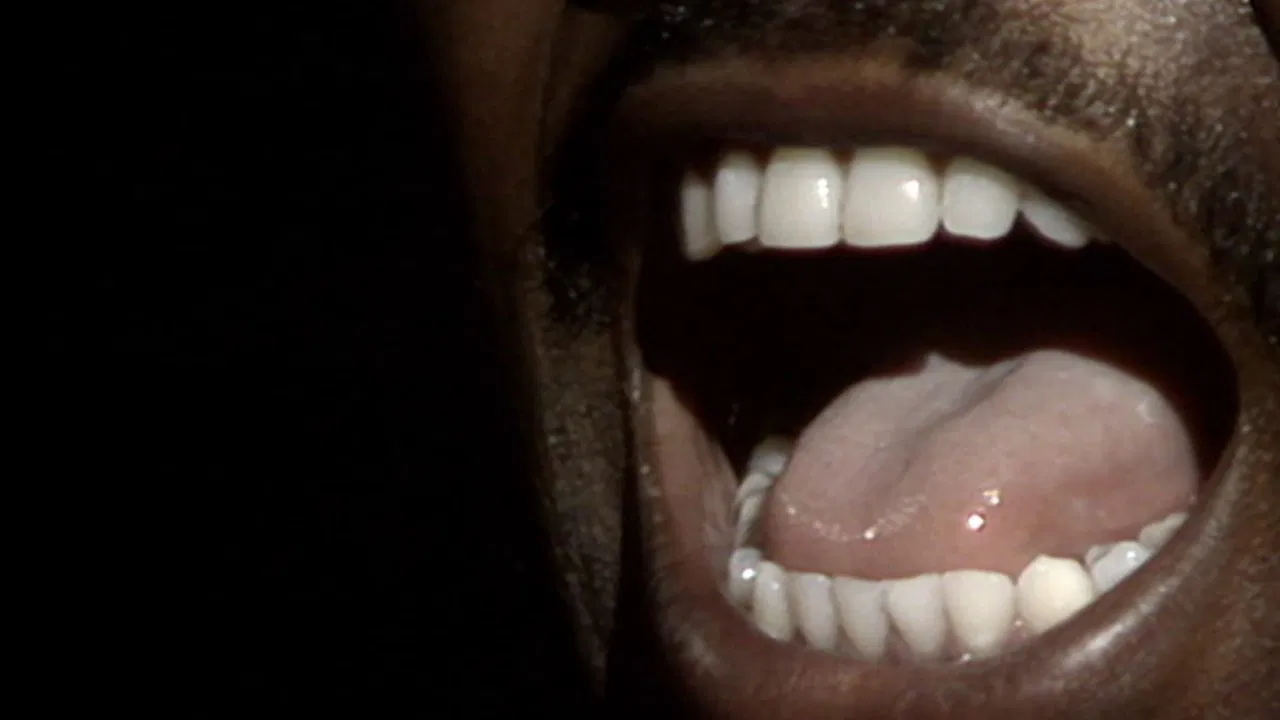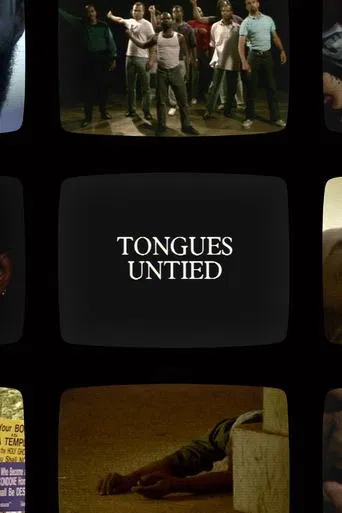

I love the film... I'm just really over gay films that always have to drag AIDS/HIV in it... like it is the way of a life of a homosexual. And it must of been hard back then.. this films give people hope. Hope that we may overcome all the racists shadow that over shadow us and the way American people have condemned itself not to become nothing more but followers of others thoughts
... View MoreI must admit, this Valentine's Day I have certainly picked unconventional romance movies to watch..."Tongues Untied" plays out like a visual poem, featuring monologues and images dealing with black homosexuality, all edited to create a truly powerful portrait to a little discussed subject matter.The main thing this film has going for it is its style. As I previously stated, its like a visual poem. Its a rhythmic and emotional odyssey through the lives of these people who, especially in 1989, have been represented very little in the media. At times, it gets a little to SJW and over the top, but their rage is somewhat valid. In the late 80s, being black and gay was much harder than it is in the mid 2010s.
... View MoreMarlon Riggs' documentary "Tongues Untied" left a brief, but definitive impact on me. This documentary about gay African-American men reveals several poets, preachers, activists, and scholars. There is no narration in "Tongues Untied". Instead, all the dialogue is spoken in philosophical rhymes and poems. The documentary showcases, and even full-on exposes its praise for the black homosexual lifestyle, in an artistic and flamboyant fashion.As a filmmaker myself, I was drawn into how Riggs was able to explain the persecution of homosexuals without having a sit-down interview, and instead uses stand-up performances, poetry, and symbolism to prove his point. From the confines of a gay black man's isolation and loneliness, to the exciting experiences of the San Francisco "Castro" district, Riggs took the audience to some fascinating, and often times deplorable world that gay black men face every day of their lives.I was a little annoyed by the pacing of the film. There were some parts that had me yawning. But "Tongues Untied" sends a powerful message of tolerance, culture, and tradition from a filmmaker who is sadly no longer with us. This documentary captured my attention, and I enjoyed it thoroughly.
... View More"Black men loving black men is a revolutionary act." It is also a documentary act which is straightforward, polemic, complex, with heart, with gusto. With diction that fights affliction, this is its basic weapon of beauty, as if its undercurrent was "beauty is no booty for the enemy".For me, a gay white male from Greece, this documentary, coming from my oblique point of view (oblique because being gay in Greece, despite its, rather ironic, pederastic tradition, is quite apart with the issues and the culture of the film, yet the sense of segregation and tradition rings familiar), descriptively it feels like a star-crossed breed of gospel and guerrilla video art.Its veins are pounding deep; being a writer and translator, listening to such keen, sexy, visceral rhythms by the imposing figure of Essex Hemphill, was a revelation with an obsessive glow.And Marlon Briggs' narration, spacious and incisive, unflinching and embracing, with an amazing sense of building-up, leaves me bewildered, more so for appearing somewhat tuned down at first.For anyone liking the feeling of words doing as they want to do and as they have to do, as Gertrude Stein admirably put it, this is a definite watch.
... View More